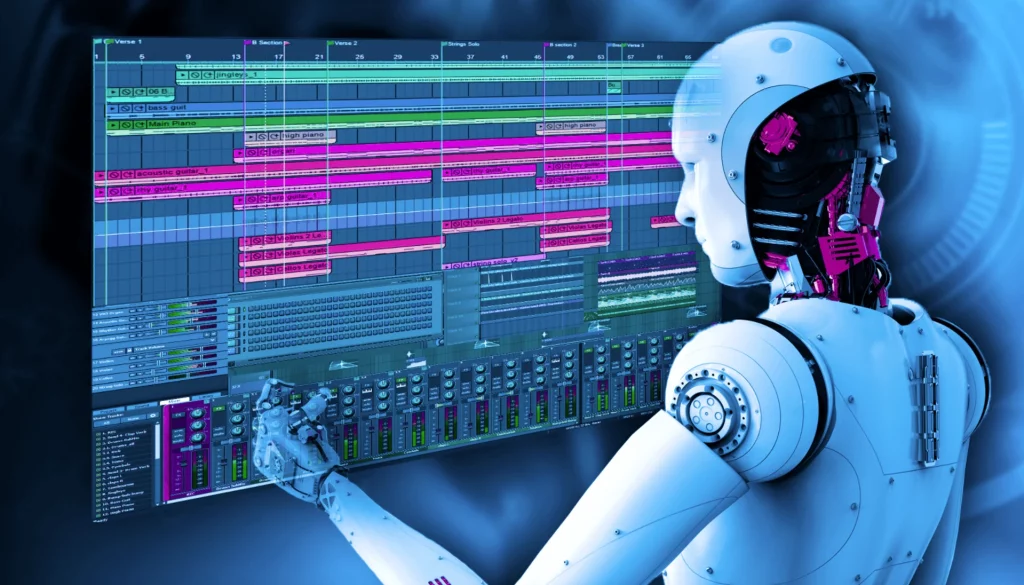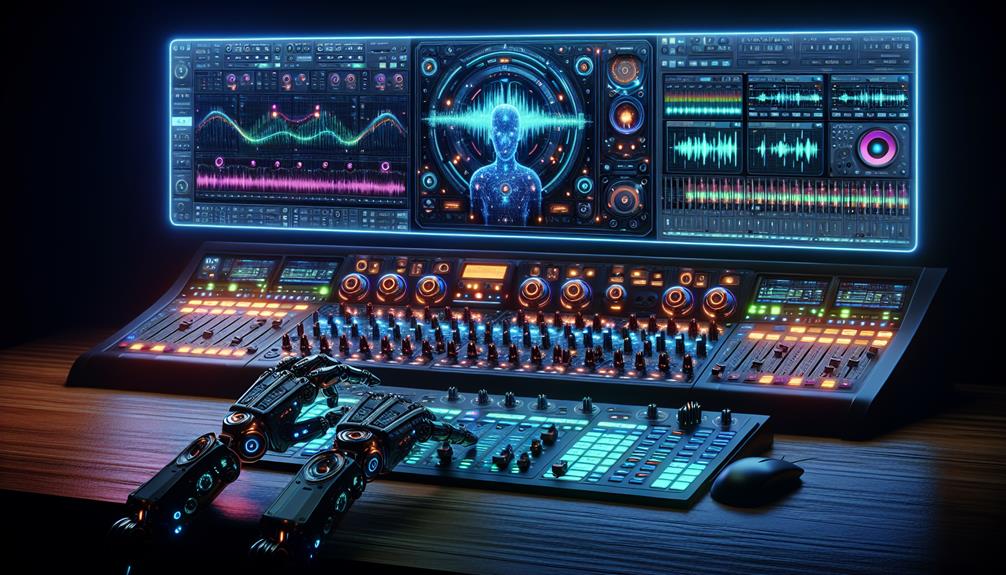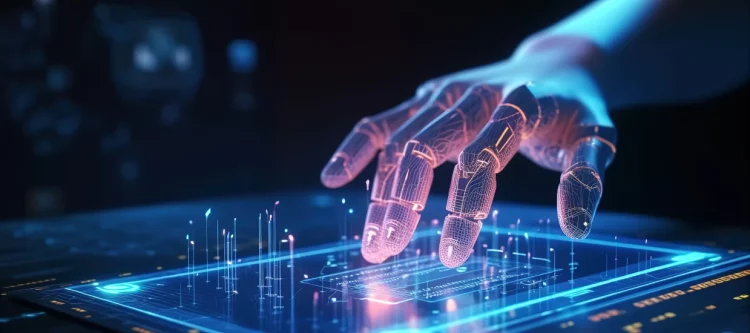AI: The New Vanguard in Music’s Infinite Cosmos
The cosmic realm of music, boundless and ever-evolving, now witnesses the rise of artificial intelligence as the latest explorer, a development that has sparked invigorating discussions around creativity, originality, and artistic value.
With the ascension of AI music production software like Suno, we’ve entered a novel epoch where machines not only replicate established musical styles but even craft melodies and harmonies previously unconceived. This technological revolution has, in equal measure, prompted thoughtful debates amongst artists and the public alike.
To some, software such as Suno signifies liberation—a tool for unleashing creativity. To others, it poses a threat, potentially undermining the livelihood of artists. The debate over the coexistence of AI with human creativity emblazons itself as a defining discourse of our age.

Suno: A Spotlight on the Versatile Music Generator
Before delving further, let us understand Suno, the AI music generator that has captured attention. Armed with simple text prompts, Suno seamlessly delivers lyrics, vocal performances, composition, and scoring for complete songs in specific genres—vocals included.
Suno’s recent collaboration with Microsoft, integrating its capabilities with Microsoft’s Copilot, along with the launch of its V3 iteration, capable of a 2-minute song rendition, advances our journey across the song-creation barrier. Suno promises on its website: “Whether you are an amateur singer or a chart-topping artist, we bridge the gap in song creation. All it takes is your imagination—no other tools necessary.” Thus, it heralds an era where the threshold to music creation is vanquished.
A friend’s enthralling encounter with Suno serves as an eye-opener. She embarked on a quest to reinterpret classic soundtracks from China’s illustrious novels—a process distilled to a few simple steps and within a minute, she beheld two AI-crafted tunes, available in audio and video formats, the latter adorned with AI-generated visual covers. Each piece, she analogized, is akin to a rare bloom—one, an ethereal blossom; the other, flawless jade.
Stability AI Advances with Stable Audio 2.0
Meanwhile, Stability AI’s Stable Audio 2.0 punctuates another milestone. Its predecessor, 1.0, since its debut in September 2023, earned accolades including TIME magazine’s “Best Invention of 2023.” Its successor further expands the soundscape to encompass intros, choruses, outros, and stereophonic effects for up to 3-minute audio sequences.
This iteration not only produces complete tracks but also assists creators in fashioning a variety of sounds and effects. A novel feature—extension of brief audio uploads into a full-fledged composition—promises a boon for musicians facing creative roadblocks.
The Dichotomy of Opinions
Supporters of AI greet Suno and Stable Audio 2.0 with fervor, envisaging these technologies as an unprecedented toolbox for music creation. They applaud AI as a catalyst, not a terminus, for creativity, capable of inspiring artists in previously unimaginable ways.
Conversely, over 200 international musicians united in an open letter urging a halt to AI tools infringing upon and belittling the rights of human artists, pressing tech firms to desist from developing AI music generators that might “usurp or eclipse the human artistry” of songwriters and artists. Such voices, spanning a broad artist community, resonate with a steadfast opposition to AI’s “predatory” use, fearing a diminishment of music’s unique value and an “attack” on human creativity.

The Debate Stirring the Human Touch in Music
Consider a piece created with Suno—improv jazz that not only replicates the genre’s technique but also captures its improvisational soul, traditionally considered the realm of human virtuosity. A renowned jazz musician’s comment, “The piece is incredible, but I can feel that the pianist has never enjoyed a lazy Sunday afternoon,” sparks discussions around AI’s capacity to convey human emotions.
Intriguingly, a poll among Bilibili’s music creators reveals differing stances: some embrace AI as a tool without complete reliance, others see AI-produced works as lacking distinctiveness, and there are calls for more openness even suggesting an AI music chart.
The Legislative Response to the AI Challenge
In response to such fervor and apprehension, Tennessee Governor Bill Lee signed a seminal bill on March 21, 2024, aimed at protecting artists from unauthorized AI utilization. The ELVIS Act, an extension of previous copyright law, targets the emerging challenges of AI technology, fostering a balance between innovation and the safeguarding of artists’ rights.
The Culmination: A New Era of Creation and Collaboration
With AI’s deeper penetration into the music production arena, we stand at a historic juncture. As the arts and algorithms coalesce, a revolution sparks in thought and culture. AI extends infinite possibilities, yet the core of art remains embedded in human emotion, experience, and perspective, representing individual uniqueness and profound human connection.
The collaboration between AI and human musicians might hold the key—a symbiosis where AI shoulders the analytical load, and artists infuse irreplaceable creativity and emotional depth. Such partnerships promise an innovation that stays intimately tied to human experience, producing art that resonates at the heart’s core.











































Discussion about this post